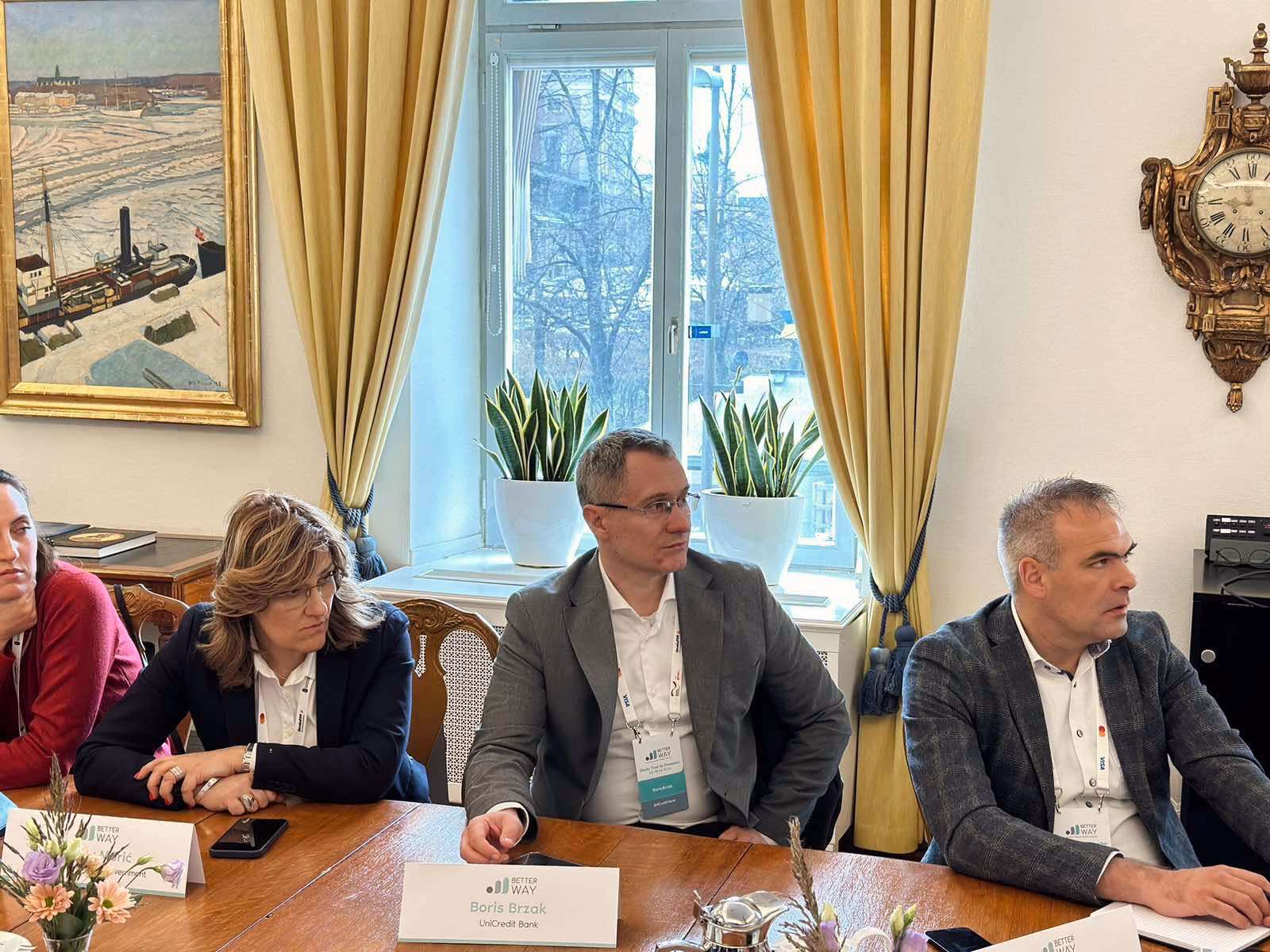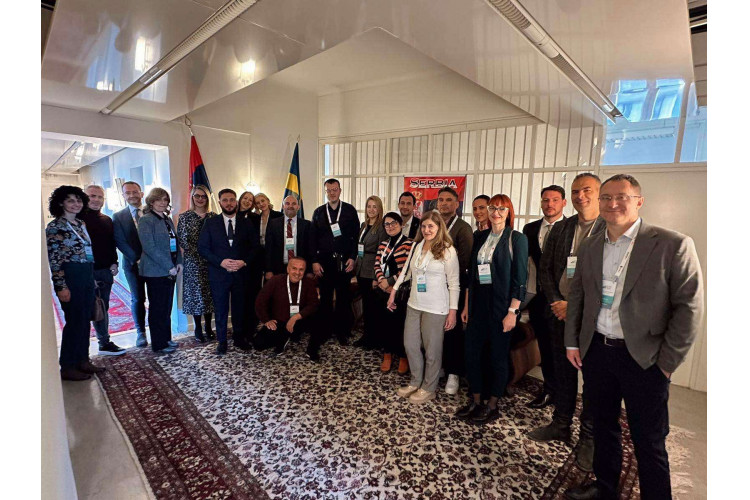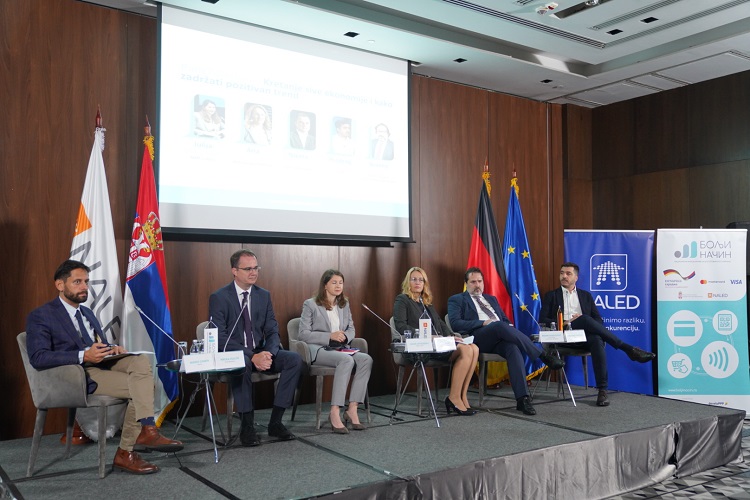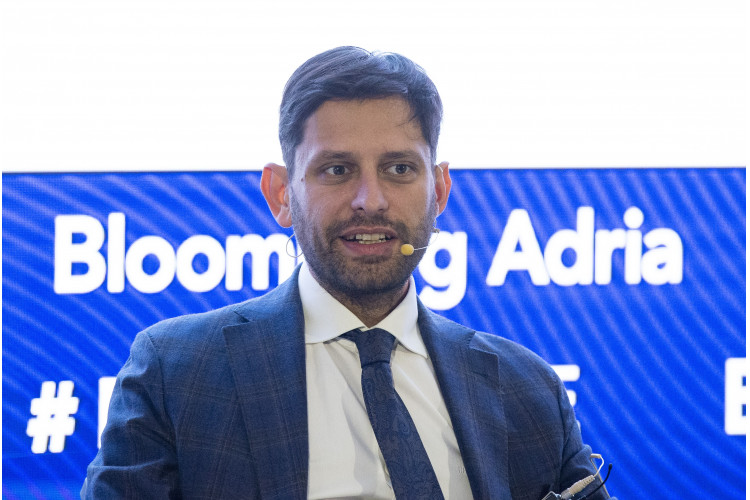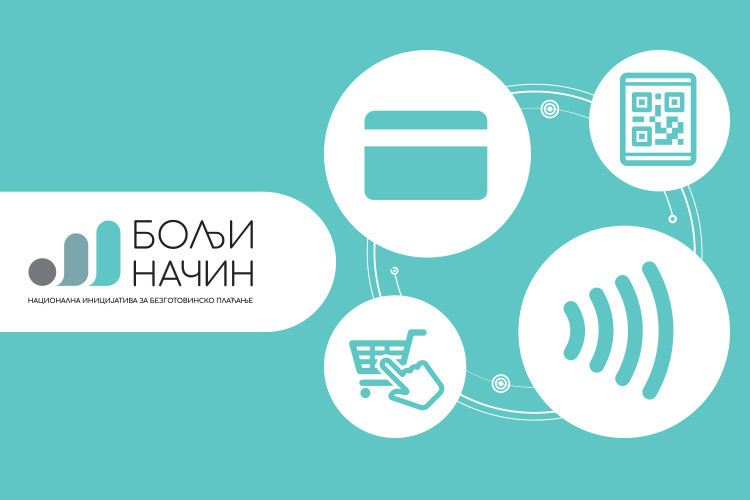How Sweden phased out cash and what we can learn from it
Cash payments in Sweden today are a rarity, with only 8% of customers making their last purchase in-store using this method, according to official data. Such results in the development of cashless payments have been achieved through broad consensus, led by representatives of unions and employers, who have jointly highlighted the risks of cash payments to employee safety and the costs imposed on businesses by handling cash.
Participants in a study visit to Sweden, organized by NALED as part of the Better Way project with the support of the German Development Cooperation (GIZ) and companies Mastercard and Visa, had the opportunity to learn about the mechanisms and instruments Sweden has implemented to reach this level of cashless society development.
During meetings with representatives of leading Swedish financial institutions and organizations, the Serbian delegation was presented with examples of best practices for implementing cashless payments as an important tool for combating the informal economy, improving e-Government and payment transparency, digitalizing the economy, developing fair markets, and ensuring financial inclusion for all segments of society.
The Serbian delegation, including initiators of the Better Way initiative (GIZ, Visa, Mastercard, and NALED), representatives of relevant institutions, and partner organizations interested in the development of cashless payments in Serbia—such as the National Assembly, Ministry of Finance, National Bank of Serbia, Tax Administration, Office for Information Technology and eGovernment, Republic Secretariat for Public Policies, FREN, UniCredit Bank, ProCredit Bank, and Banca Intesa—had the opportunity to gain insight into the Swedish regulatory framework for cashless payments, various payment models, technological innovations, as well as support programs and incentives in this area.
The study visit began with a meeting at Finansinspektionen – the Financial Supervisory Authority, where guests from Serbia were introduced to activities related to the development of tools for implementing new financial technologies (fintech) and the latest regulatory processes in the field of payment systems. The first day of the visit concluded with a reception at the Embassy of Serbia in Stockholm, hosted by H.E. Ambassador Jelena Čukić Matić, and welcomed by Deputy Ambassador Zorka Keković.
During a meeting with SweFinTech - the Swedish FinTech Association, the history and trends of the fintech market in Sweden were presented. Throughout the visit to KTH - the Royal Institute of Technology, Professor Niklas Arvidson acquainted the delegation with the development of what he referred to as a "healthy cashless society" and the benefits it brings.
A meeting was also held with representatives of BankID and SEB bank, who presented the significance of the BankID system as an electronic identification system in transforming the financial sector, as well as the ways in which banks apply it in their operations.
The delegation also had the opportunity to meet with Deputy Governor Per Janson of Sveriges Riksbank - the Swedish Central Bank, where discussions focused on reducing cash usage in Sweden and trends in payment markets and digitalization.
Additionally, a visit to POWRS, one of the leading Swedish fintech companies operating in the Serbian market, was organized to explore potential product placements in our country.
NALED, together with partners on the Better Way project - GIZ, Mastercard, and Visa, continues to work on improving the cashless payment system in Serbia. The visit to Sweden is the second in a series organized by NALED and partners to further develop digital solutions in our country. Last year, the Serbian delegation visited Poland, which is one of the best practice examples in the development of cashless payments in the Central and Eastern Europe region.



